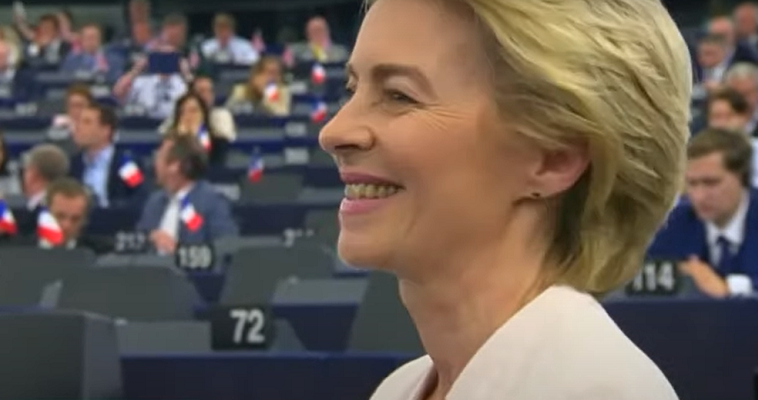Gerasimos Potamianos: Recovery Fund: Everything changed, yet all remains the same
24/06/2020
The European Rehabilitation Fund comes to replace the debate on the cohesion of an indebted Europe and its necessary institutional revision. With a swap, a contract to be redeemed in the future, the financial solution has overridden politics. But when the future is in the market, the problem has been swept under the carpet and the upgrade of the Greek economy is doubtful.
“On the basic architecture of the plan we say ‘yes’, but there are still some open issues,” Merkel said after the teleconference of the 27 leaders. It seems that the discussion on the huge loan of 750 billion now concerns only two issues: the ratio of loans and grants and the criteria for allocating resources to member countries.
The short conference of the 27, dealt mainly with the answers of the Commission, to many “technical” questions, but which concern the essence of the proposal. One of these is the distribution criteria, based on which the amounts will be distributed. Many leaders have protested, as one of the criteria is based on data unrelated to the coronavirus crisis, such as unemployment rates of the previous five years (2015-2020).
The distribution criteria proposed by the Commission are not sufficiently substantiated, but are chosen to benefit countries such as Italy and Spain. The Franco-German axis wants to keep these countries at the core of Europe after the pandemic.
A smart swap
In this way, the Franco-German proposal has bypassed key institutional issues concerning the political stakes of cohesion and the future of the EU, which must include correcting institutional shortcomings (leading to inequality and over-indebtedness of states). Following Brexit and the prospect of economic slowdown, the EU was forced to engage in a debate on its future and the political climate raised the issue of institutional revision.
The shock of the pandemic gave the opportunity to “change everything without changing anything.” The European institutional negotiation is exchanged for a giant loan, with a futures contract. The Franco-German axis proposed a “smart” solution with two components. The first is obvious. It concerns a loan package that meets the immediate needs of the recession.
The second is difficult to discern, as it consists of a network of specifications and institutional controls, which indirectly but clearly aspires to ensure, even after the pandemic, the framework of rules that have been called “German Europe”. Through the specifications and policy options contained in the von der Leyen proposal, the direction of the expenditures that will finance sectors and regions of the Member States is predetermined.
Targeted, “investments and reforms” will be financed in the Member States (according to plans drawn up by them), as is the case with NSRF funding. However, the countries will not have control over the plans, ie they will not be able to propose what they want, based on national planning. For example, the financing of the welfare state will be out of such specifics. The plans should be in line with the EU’s new climate and digital economic targets and should remain within fiscal rules and control of the European Semester.
The negotiation that never was
The von der Leyen proposal (despite the fact that it removes the sovereignty of states in favor of loans obtained through government guarantees and budget contributions for the benefit of the Commission) has been accepted by governments. This is despite the fact that it is completely different from the original request for Eurobonds, which concerned the reciprocity of government debt.
As they find themselves in a difficult economic situation, even the major countries of the South (such as Italy and Spain) are facing a range of sovereignty issues (the consequences of which, however, will become apparent only later), in order to quickly receive them resources that will facilitate immediate crisis management. In that sense, the negotiations are over, and that is what Merkel said.
However, there is still room for bargaining for the amount of aid to be distributed. The northern countries that are allies of Germany (Netherlands, Austria, Denmark, Sweden and Finland) want a change in the distribution criteria in order to finance themselves. This will be one of the rewards for accepting grants. The other is hidden in the issue of so-called “returns”.
Since Thatcher’s time, the rich countries that contribute to the EU budget, more than they receive, have taken a back seat. This undermined the financing of the convergence. If these “returns” are abolished, as envisaged after Britain’s exit, the rich countries of the North will be faced with a double increase in their obligations to the Community budget. Maintaining “returns” is therefore a requirement for northern countries to accept grants.
Haggling
If we add the differences regarding the political choices of the previous budget, it turns out that the political leaders have a great deal of haggling ahead to reach a compromise. As the compromise needs to be approved by the European Parliament, the resources will be available in the second half of 2021. Christine Lagarde, offered succor for the time, with the recent expansion of quantitative easing, a move that reassured markets.
It is now apparent why Germany is insisting that the Rehabilitation Fund be included in the budget. The aim was to connect the protracted haggling, which offer the opportunity to give and take, in order to facilitate a compromise. In particular, from the 750 billion loan, the Recovery Fund aims to distribute 310 billion in subsidies and 250 billion in loans. The remaining $ 190 billion is earmarked for various other small projects and is a sweetener for enticing countries.
The South is interested in cohesion funds, Eastern Europe is interested in agricultural funds, the North countries prefer industry, research, climate technology, etc … However, the issue is complicated, because lending will take place, based on doubling the ceiling of countries’ own resources, that is the amounts that countries contribute to the budget.
The stumbling blocks of contributions and guarantees
The Commission needs the increased ceiling as a guarantee to borrow from markets. The increase in contributions is met with strong reactions from countries that prefer a smaller Fund and therefore a smaller loan from the Commission, and therefore a smaller contribution from them. Especially when countries like Italy and Spain, which are richer, are going to be helped.
At the same time, other lending instruments, such as the ESM, the EIB and the SURE, are placing a heavy burden on governments with guarantees. As the debt burden is high, the Commission is proposing new taxes, which will certainly be borne by European citizens. It even proposes that they such taxes become Commission revenue, something that was previously rejected, because it secures the independence of an appointed body from the Member States, thus offending democratic principles.
Finally, an important detail is that the 750 billion loan management rules include the control of the Commission by the European Parliament and the national parliaments. With this clause, there is again a controlling role for Wolfgang Schauble, who had a significant contribution to the von der Leyen proposal. The clause aspires to convince the northern countries that for those who receive subsidies, Cerberus lurks at the gates of hell.





